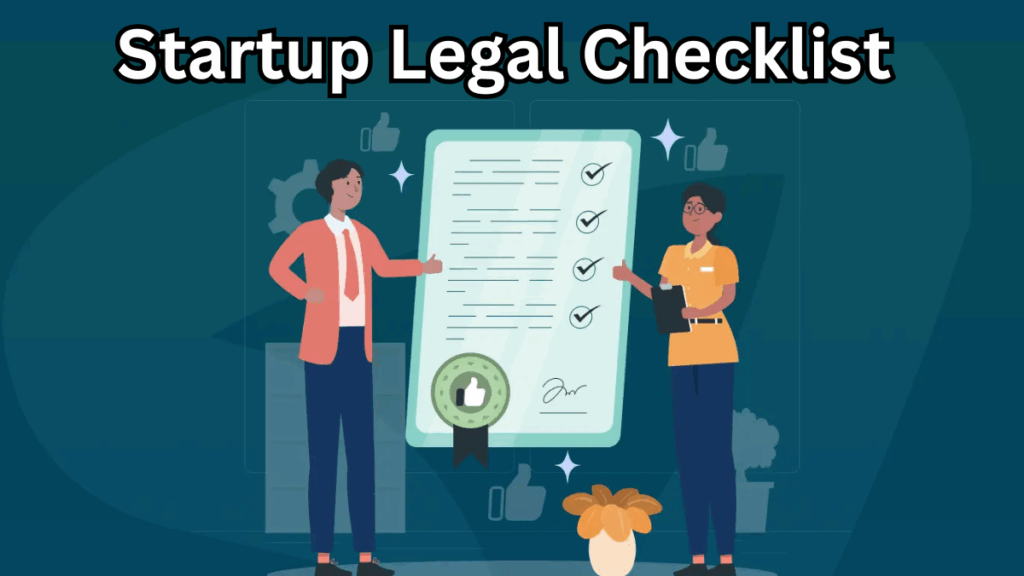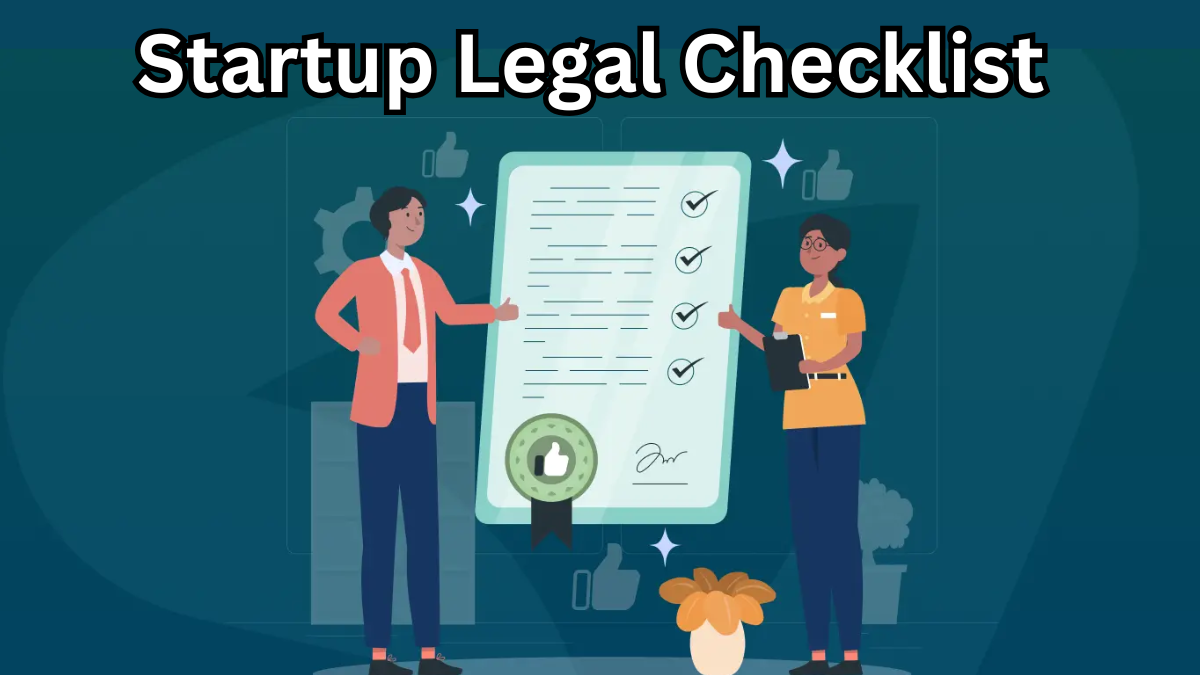Starting a business is exciting, but ensuring you’re legally compliant from day one is crucial. This Startup Legal Checklist 2025 has been designed as a practical compliance guide for new founders who want to launch their ventures without unnecessary legal headaches.

Why Legal Compliance Matters for Startups
A strong legal foundation helps startups:
-
Avoid costly disputes in the future
-
Build investor confidence
-
Protect intellectual property and business assets
-
Ensure smooth day-to-day operations
In 2025, with stricter regulatory norms and evolving business laws, having a structured compliance guide is more important than ever.
Key Components of a Startup Legal Checklist 2025
Business Structure & Registration
Choosing the right structure sets the tone for taxes, liability, and scalability.
-
Decide between a Sole Proprietorship, Partnership, LLP, or Private Limited Company
-
Get registered with the Ministry of Corporate Affairs (MCA)
-
Obtain a PAN & TAN for tax purposes
Licenses & Permits
Depending on your industry, you may need:
-
GST Registration
-
Shops & Establishment License
-
FSSAI (for food-related businesses)
-
Import-Export Code (if dealing internationally)
Intellectual Property (IP) Protection
Safeguard your ideas and innovations:
-
Trademark your brand name & logo
-
Register copyrights for creative assets
-
File for patents if you have unique inventions or technologies
Employment & HR Policies
Even small startups need proper employee documentation:
-
Draft employment contracts & NDAs
-
Set up an employee code of conduct
-
Comply with labor laws, minimum wages, and social security schemes
Tax & Financial Compliance
Stay on top of your financial obligations:
-
Maintain proper accounting records
-
File GST & income tax returns regularly
-
Adhere to ROC (Registrar of Companies) filings
Vertical Table: Quick Compliance Guide for Startups
Compliance Area |
Action Needed |
Timeline |
|---|---|---|
Business Registration |
Company formation & PAN/TAN |
Before launch |
Licenses & Permits |
GST, FSSAI, Import-Export Code |
Before operations |
Intellectual Property |
Trademark, copyright, patents |
Early stage |
Employment Compliance |
Draft contracts & HR policies |
Hiring stage |
Financial & Tax Compliance |
ROC filings & tax submissions |
Ongoing |
Practical Tips for Staying Compliant in 2025
-
Hire a legal advisor – Having an expert to review contracts and agreements saves you from future disputes
-
Use compliance software – Many tools now help automate ROC filings, GST returns, and payroll management
-
Keep records updated – Outdated documents can lead to penalties during audits
FAQs
Why is the Startup Legal Checklist 2025 important?
It helps new businesses navigate legal obligations smoothly and avoid costly penalties or disputes.
What are the most common licenses needed for startups?
Most startups need GST registration, Shops & Establishment licenses, and sector-specific permits like FSSAI or IEC.
Do small startups need to worry about intellectual property protection?
Absolutely. Even early-stage startups should trademark their name and protect their intellectual assets.
How often should startups review their compliance guide?
At least once a year or whenever there are changes in business operations or legal requirements.
Click here to learn more
